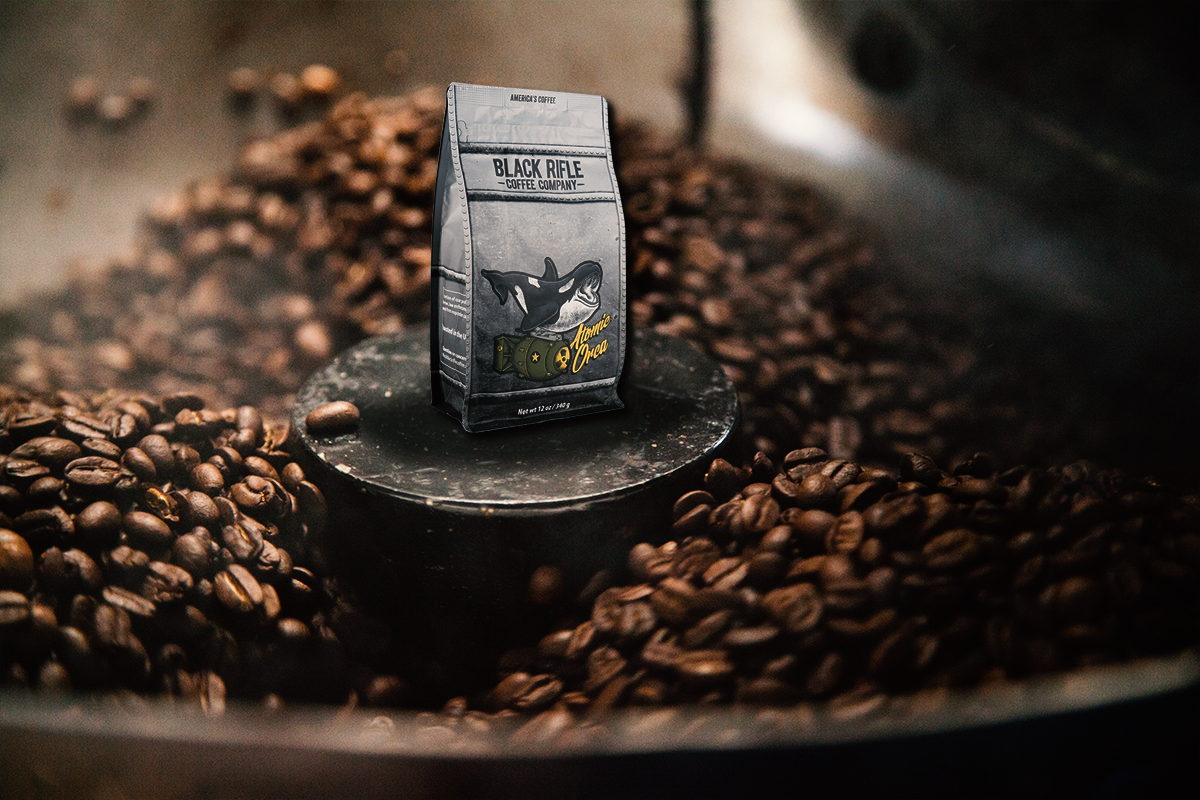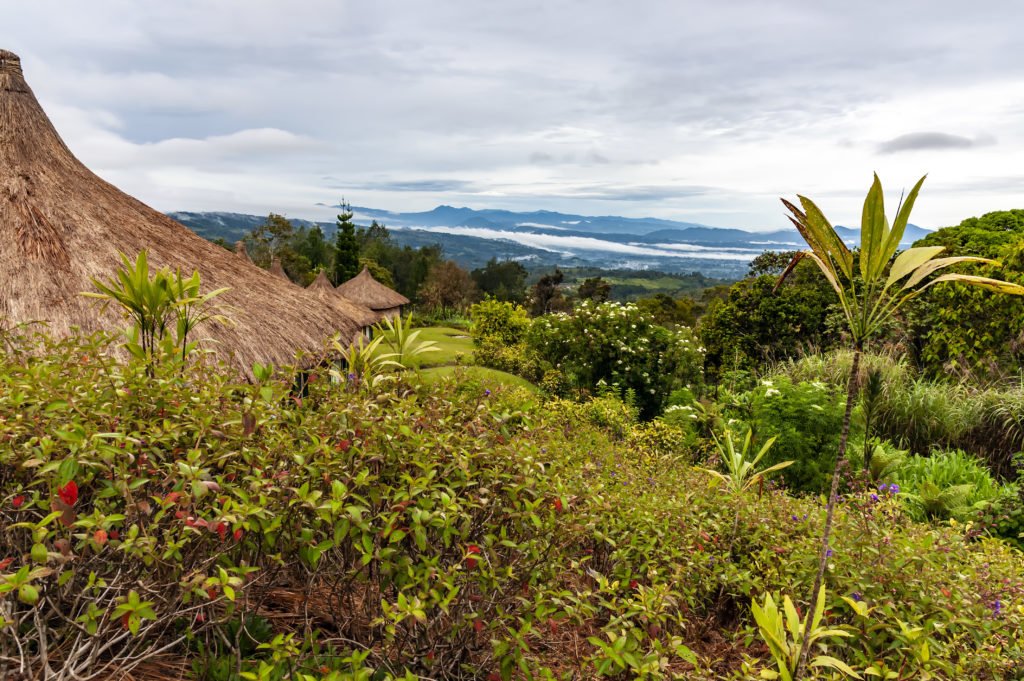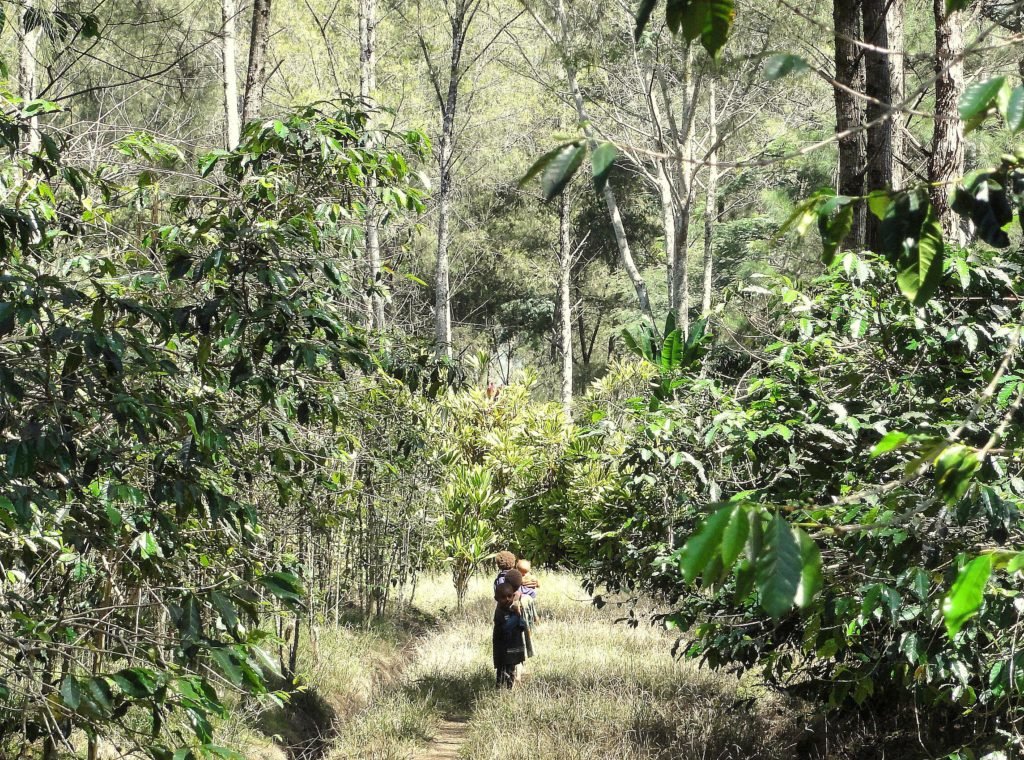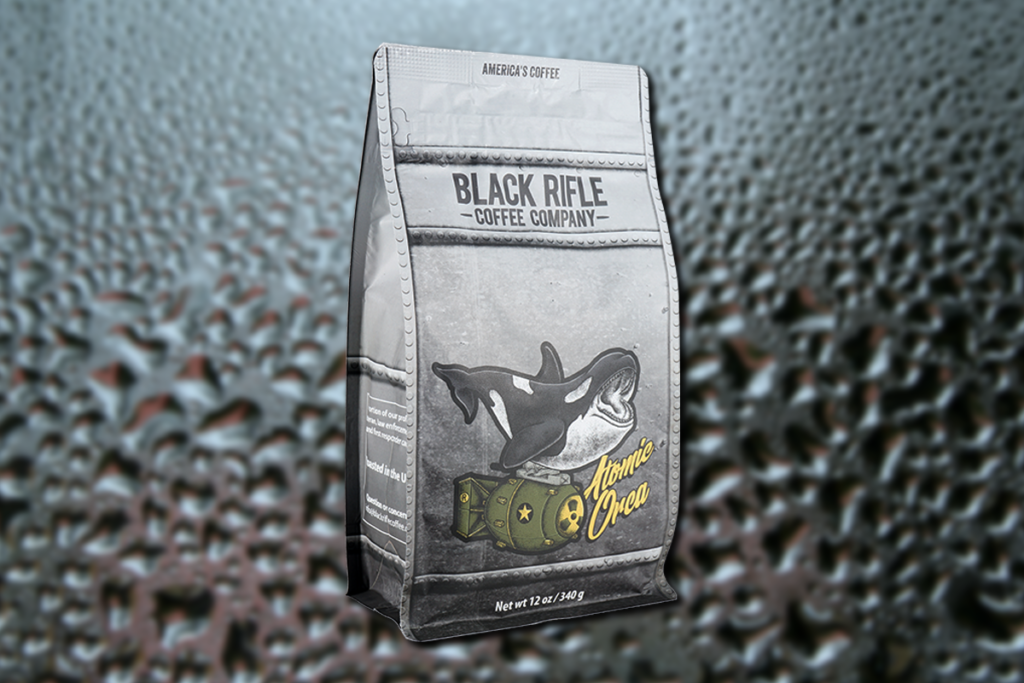
papua new guinea wet process atomic orca black rifle coffee company exclusive coffee subscription. Graphic by Luke Ryan/Coffee or Die.
Sweeping valleys and highlands, beautiful tree-covered landscapes as far as the eye can see, and about as temperate a climate as you could ask for — that’s Papua New Guinea. Located north of Australia on the eastern part of the island of New Guinea, Papua New Guinea, or PNG, is a small nation with one of the most diverse populations in the world. More than 700 languages are spoken among its 5 million inhabitants. The cultural differences range from the Huli tribe that uses colorful clay to paint their bodies to the men of the Sepik region who undergo painful cuts on their backs as a symbol of strength.
Beyond the breathtaking landscapes and diverse cultural practices, Papua New Guinea is home to some of the world’s most renowned coffee, including the famed Jamaican Blue Mountain Coffee. While it is widely believed that the Jamaican Blue Mountain coffee was planted in PNG around 1926, PNG’s Coffee Industry Corporation cites that it arrived as early as 1890.

The best Blue Mountain coffees are known for their smooth, mild flavor and lack of bitterness. Over the past few decades, they have become some of the most expensive coffees in the world, and PNG has become an expert in using those beans to their fullest potential.
The production of Jamaican Blue Mountain jump started the coffee production industry in PNG, and now much of Papua New Guinea’s agriculture is dedicated to coffee. However, a poor infrastructure keeps PNG from completely dominating the global stage. Much of the rural community is cut off due to a lack of connecting roads, which leads to much of the coffee going unsold and unused. Many people of PNG also deal with bandits that raid and steal from coffee shipments.
The overuse of pesticides and herbicides is another issue for farmers in Papua New Guinea, including those cultivating coffee trees. Beyond that, many PNG citizens practice semi-subsistence farming, so instead of focusing on producing a crop for profit, many are just trying to feed themselves and their families.

Even with the agricultural struggles, many people seek out the coffee of Papua New Guinea. Take, for example, the coffee found at the Sigri Estate.
The Sigri Estate is a coffee plantation in the Waghi Valley of PNG that was established in the 1950s. It has since expanded to international renown due to its incredible quality control and diverse techniques in coffee production. The 125-acre estate is also home to a diverse wildlife habitat, including about 90 species of bird, thanks to its use of the shade-growth process, which allows for even ripening of the coffee fruit. All coffee found in the Sigri Estate originated with the Jamaican Blue Mountain coffee beans planted years before, falling under the Typica varietal.
The beans undergo a rigorous wet process that includes a three-day fermentation period, and then they are sun-dried for about two weeks. The dried beans are then machine- and hand-sorted to maintain a high level of consistency among the coffee. The product of such a rigorous process is a medium-bodied coffee with milk chocolate and spice notes layered with tropical fruit and citrus acidity.

Black Rifle Coffee Company’s latest Exclusive Coffee Subscription roast, Atomic Orca, is one of the newest coffees from the Sigri Estate. According to the team at BRCC, the roast was developed by a combination of porpoise scientists, Q graders, and engineers:
“After years of experimenting with exotic coffees, porpoise scientists have found a way to end the war on bad coffee. A team of Q graders and fission engineers discovered that when you roast and crush micro-lot coffee cherries, they unleash a colossal explosion of complex flavors and aromas — powerful enough to force corporate coffee chains and overpriced hipster boutiques to surrender. The Atomic Orca is armed with a payload of Papua New Guinea washed coffee and a mission to end the war on inferior coffee.”
All jokes aside, Papua New Guinea may not be the first place you think of for high-quality coffee beans, but it is a beacon in the coffee world. Through immense levels of quality control, PNG finds itself producing some of the most consistent, high-quality coffees in the world. The country is seeing growth in its individual industries, and with increased exposure, perhaps more of its coffee will find its way to consumers worldwide.

Tim Becker is a freelance journalist and journalism student at Florida Atlantic University. Tim has a diverse set of interests including gaming, technology, philosophy, politics, mental health, and much more. If he can find an angle to write about something, he will. Aside from his interests journalism is his passion. He wants to change the world with his words and photography. Tim writes for a variety of publications including the GoRiverwalk Magazine, the FAU University Press, and his personal blog on Medium.
BRCC and Bad Moon Print Press team up for an exclusive, limited-edition T-shirt design!
BRCC partners with Team Room Design for an exclusive T-shirt release!
Thirty Seconds Out has partnered with BRCC for an exclusive shirt design invoking the God of Winter.
Lucas O'Hara of Grizzly Forge has teamed up with BRCC for a badass, exclusive Shirt Club T-shirt design featuring his most popular knife and tiomahawk.
Coffee or Die sits down with one of the graphic designers behind Black Rifle Coffee's signature look and vibe.
Biden will award the Medal of Honor to a Vietnam War Army helicopter pilot who risked his life to save a reconnaissance team from almost certain death.
Ever wonder how much Jack Mandaville would f*ck sh*t up if he went back in time? The American Revolution didn't even see him coming.
A nearly 200-year-old West Point time capsule that at first appeared to yield little more than dust contains hidden treasure, the US Military Academy said.












